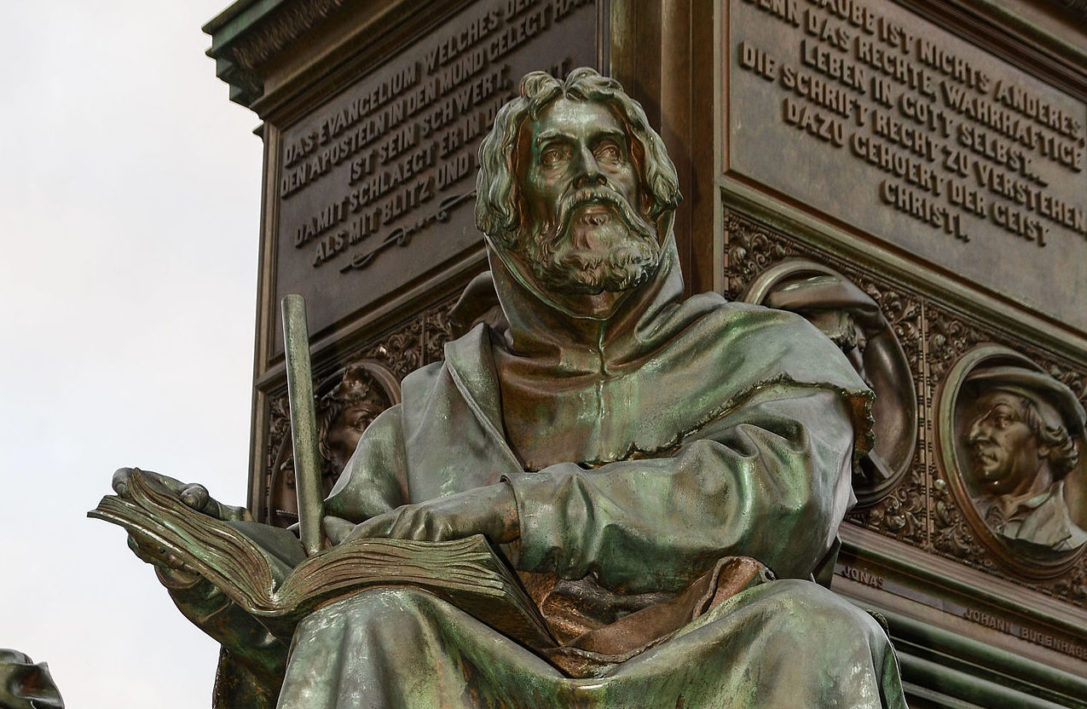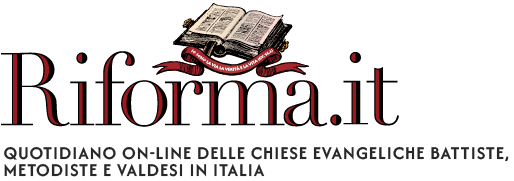
The 850th anniversary of the Waldensian movement
A year of events and celebrations kicks off. A dedicated website gathers all the planned appointments. Interview with pastors Tomassone and Bernardini
«One of the reasons for the attention of Italian public opinion towards the Waldensian Church (just think of the taxpayers’ choices for the 8permille, ed) is the constancy in remembering the ideals of its origins, a reference point for today and for the future. Origins of a distant time, that of the 12th century, evoked starting from the name that distinguishes it, ‘Waldensian‘ in fact, which requires to be often explained and recounted» tells to Riforma pastor Eugenio Bernardini, who coordinates the Commission in charge of coordinating and promoting the events that will characterise 2024, chosen to commemorate the 850th anniversary of the Waldensian movement, .
«Valdo, a merchant who lived in Lyon towards the end of the 1100s (a forerunner of Francis of Assisi, he decided to strip himself of his possessions to live in poverty like Jesus, ed.), still inspires ideals that are current even for Italian citizens despite the growing disinterest in the religious fact. The first «ideal» Bernardini continues, «lies in the fact that Christianity is such to the extent that it is based on biblical teaching, on the message of Jesus, on his example and on his life. Therefore, not only on the tradition of the church. The second “ideal” lies in freedom, that is, in the fact that every believer has a duty, in freedom, to witness and preach the Gospel: the church is not merely an ecclesiastical matter, but a secular matter, which concerns everyone and everyone. A third “ideal”, which often strikes public opinion, is the one handed down to us by Valdo and his movement, and which still belongs to us today: the fact that even then, as today, the church had to be poor and that it had to base its strength not in the material good but in the supreme good contained in the Gospel message, thus defining a clear separation between political power and the spiritual power of faith. An anniversary for a Christian church is not an occasion for self-celebration, but an opportunity to reflect and plan for the future with renewed fidelity to the Gospel message. As the philosopher Mario Miegge used to say, the interest in history is not so much in history itself, but in the consciousness that derives from it».
Between 1173 and 1174 Valdo, reading the Bible in depth, made a decision that changed not only his existence but that of many others who decided to follow his example. It was the beginning of the Waldensian movement. With the accession to the Reformation in 1532, what we still know today as the Waldensian Church was born, which, after the Integration Pact of 1975, became the Union of Methodist and Waldensian churches.
«The decision of Valdo of Lyons, to live in poverty and to preach the Gospel, was a historic moment of great significance and capable of giving life to a movement that through the centuries has managed, by transforming and ‘reforming’ itself, to leave traces even in the Europe that we know today,” recalls waldensian pastor Erika Tomassone, vice-moderator of the waldensian Table, the executive body of the Methodist and Waldensian churches.
«In various places around the world (France, Latin America, Germany, Switzerland), various celebratory moments are being prepared for 2024,’ he continues. Events that are not pre-packaged: everyone, in fact, can take, in full autonomy, the decision to organise events linked to their own territory to celebrate the commemorative year of a movement that has had different impacts in our territory: think of Calabria, which saw its first Waldensian communities arise in the late Middle Ages, or the persecutions suffered over time; in short, it is a matter of telling the geography of migrations then, looking at the geography of today, passing through the mountain paths of then to the highways of today. A journey that reminds us of the colportori» – those evangelicals who distributed Bibles using wooden carts at the end of the 19th century.
«The underlying theme» Tomassone resumes, «I believe can be precisely freedom, or rather the declination of freedom that we have always had. “Valdesi in movimento’ is not a mere slogan. Ours is a history of many displacements, voluntary, forced, in which we have always carried, guarded and defended our faith. Family stories and tales from the past, the migrations themselves still help us to read history, to define a different geography, and to understand the past in order to define our present. To consciously cherish memory. In modern times we were perceived as an anti-clerical movement, today as a social and cultural church, some in the past sought us out then pushed us away and then brought us closer again, some through reading the Bible as in Diodati’s translation».
But certainly, Tomassone finally recalls, «today ours is an intergenerational church that brings together people with different pasts and experiences, and today, even more than in the past, we are a church made up of people even more different from what one could have imagined even only forty years ago. In this adventure of sharing the faith, today we are joined by people from other continents, even non-Valdescans from Reformed world church families. This way of ‘being church together‘ is linked in my opinion to a key word: inclusion. Many souls have approached the Waldensian movement over time, and we know, as the Bible also reminds us, that uniting is never an easy thing. This is the challenge today: to be church together despite different theologies and despite different ways of praying and understanding society. The Waldensians are in a way a good example of a practical theology of inclusion».
The Waldensian Church and the Waldensian Cultural Centre Foundation (Ccv) therefore have several projects in the pipeline (those of the Ccv will be presented at a press conference in Turin on 18 January); a conference promoted by the Foundation will be held on 3 February at the Waldensian House in Torre Pellice on ‘Heresies of yesterday, heresies of today‘. But all the appointments of the “850 years”, which are constantly being updated, can be consulted on the website www.valdo850.org .

